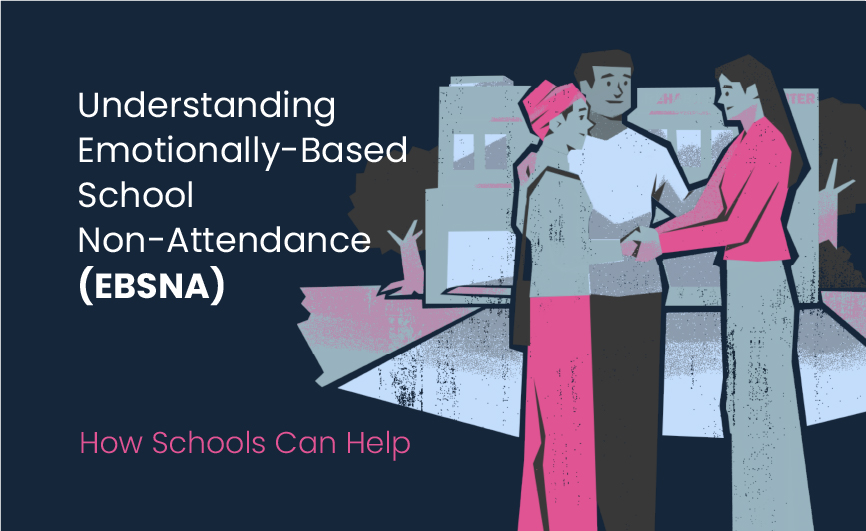
EBSNA support

Understanding Emotionally-based school non-attendance (EBSNA)
What is EBSNA?
Emotionally-based school non-attendance’ (EBSNA) is increasingly understood as a multi-faceted difficulty, with a range of school, home and individual factors contributing to a child’s or young person’s anxiety around attending school.
What can school do to support your child?
– Offer emotional and practical support to parents (you are not alone)
– Promote that the learners well-being is our priority
– Regularly communicate with parents (you are the professional when it comes to knowledge of your child)
– Make reasonable adjustments (timetable, uniform etc)
– Raise awareness of anxiety and the physical symptoms
– Involve parents in action plans when referring and consulting with other professionals
– Ensure that the school environment considers and aims to meet sensory needs
– Recognise that learners do not refuse to come to school, it is often that they can’t attend school rather than won’t attend!
How should anxiety be recorded on the register?
If your child is to ill to attend school (this includes mental health) this should be recorded as an authorised absence.
Code I: Illness (not medical or dental appointment)
The pupil is unable to attend due to illness (both physical and mental health related). Schools should advise parents to notify them on the first day the child is unable to attend due to illness. Schools are not expected to routinely request that parents provide medical evidence to support illness absences. Schools should only request reasonable medical evidence in cases where they need clarification to accurately record absence in the attendance register – i.e. making a decision that code I is the absence code that accurately describes the reason the pupil is not in school for the session in question. In the majority of cases a parent’s notification that their child is too ill to attend school will be that evidence and can be accepted without question or concern. Only where the school has genuine and reasonable doubt about the authenticity of the illness should medical evidence be requested to support the absence. Where medical evidence is deemed necessary, schools should not be rigid about the form of evidence requested and should speak to the family about what evidence is available. Schools should be mindful that requesting additional medical evidence unnecessarily places pressure on health professionals, their staff and their appointment system, particularly if the illness is one that does not require treatment by a health professional. Where a parent cannot provide evidence in the form requested but can provide other evidence, schools should take this into account. Where a parent cannot provide any written evidence the school should have a conversation with the parent and pupil, if appropriate, which may in itself serve as the necessary evidence to record the absence. This code is classified for statistical purposes as authorised absence.
DfE Working together to improve school attendance Aug 24